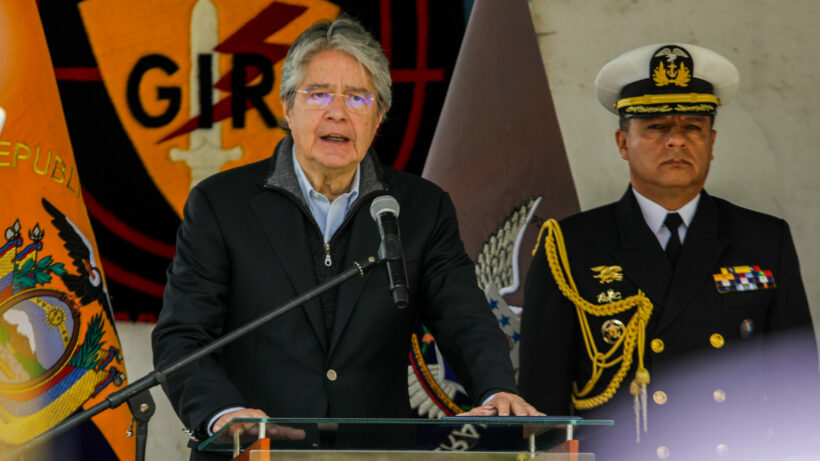With only two weeks to go before the Popular Consultation and the early national elections, last week Ecuador experienced a new escalation of criminal violence, led by gangs linked to drug trafficking and extortion, at a time when the credibility of the outgoing neo-liberal government is dropping below 10%.
The fearful and powerless population is fed by the intrigue and alarm in the mainstream media about bomb attacks, prison massacres, targeted assassinations of local politicians, shootings and burnt-out vehicles in the main cities of the country’s coastal region.
Conflict in the war is increasingly affecting the civilian population not involved in organised crime, says the coordinator of the “Order, Conflict and Violence” programme of the Central University of Ecuador, given that of the 3578 violent deaths that occurred in the first half of 2023, 79% had no criminal record.
The government’s belated response has been to resort, for the sixth time in the last year, to the declaration of a “State of Emergency”, applied in this case in the coastal provinces of Manabí and Los Ríos and the canton of Durán in the province of Guayas. Decree # 824 of 24 July, based on the Law on Public and State Security, authorises the National Police and the Armed Forces to “prevent and disrupt meetings in public spaces, (…) suspend the right to inviolability of the home (…), suspend the right to freedom of movement, (…) order requisitions (…), and make legitimate and exceptional use of force in contexts of public order control, internal protection and security”.
“The states of exception only seek greater militarisation and police presence on the streets, without really addressing the underlying issues, namely the growing drug trafficking, corruption, and the co-optation of the military, police and civil servants by organised crime,” Carolina Andrade, Ecuador’s former Undersecretary General for Intelligence, told Deutsche Welle (DW) in 2022.
The destruction of the state by neoliberal policies applied in recent years in the country is manifested in the government’s inaction and permissiveness, which, according to analysts, “could be interpreted as a suspicious complicity”, fuelled by a policy of “mafia peace” and “self-regulation of criminal violence”.
Growing conflict, restrictions on freedoms and rights, and increasing poverty feed the conditions for authoritarian options, at a time when the population has been democratically consulted on whether or not to continue with an extractivist economic model and has been called upon to choose policies of wellbeing with social investment, replacing the indiscriminate accumulation of the elites, with the punitive control of the public force and the threat of “criminal governance”.






